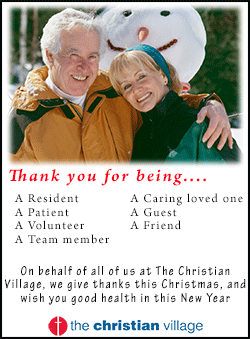|
Logan County ordinance amendments
for cannabis businesses and wind towers on the board again
 Send a link to a friend
Send a link to a friend
 [January 11, 2020] [January 11, 2020]
Two groups that prescreen ordinance decisions for Logan County
met this past week to discuss cannabis businesses and wind tower
ordinances. While the county voted recently to not allow resale of
recreational marijuana, there are many other businesses affiliated
to consider allowing.
And wind towers, well there is a potential resolution to reduce
their impact to residents at night.
Regional Planning Commission
At the January, Regional Planning Commission meeting, Logan County
Zoning Officer Will D’Andrea explained some of the proposed
ordinance changes.
The county recently voted to not allow dispensaries in the
unincorporated areas of the county. Therefore, D’Andrea said the
list of businesses does not include a marijuana dispensary.
However, the board was in favor of the medical marijuana facility,
which does cultivation. When it was approved, the board did not
think this use would be incompatible with agriculture uses.
Using state statutes as a guide, D’Andrea has been working on
definitions related to the various Adult-Use Cannabis Business
Establishments. This language will be added to the Section 15.2
definitions in the Zoning Ordinance. These establishments include an
adult-use cannabis cultivation center, craft grower, processing
organization, infuser organization, or transporting organization.
The definitions of the other Adult-Use Cannabis Business
Establishments are as follows:
Adult-Use Cannabis Craft Grower: A facility operated by an
organization or business that is licensed by the Illinois Department
of Agriculture to cultivate, dry, cure and package cannabis and
perform other necessary activities to make cannabis available for
sale at a dispensing organization or use at a processing
organization.
Adult-Use Cannabis Cultivation Center: A facility operated by an
organization or business that is licensed by the Illinois Department
of Agriculture to cultivate, process, transport and perform
necessary activities to provide cannabis and cannabis-infused
products to licensed cannabis business establishments.
Adult-Use Cannabis Infuser Organization or Infuser: A facility
operated by an organization or business that is licensed by the
Illinois Department of Agriculture to directly incorporate cannabis
or cannabis concentrate into a product formulation to produce a
cannabis-infused product.
Adult-Use Cannabis Processing Organization or Processor: A facility
operated by an organization or business that is licensed by the
Illinois Department of Agriculture to either extract constituent
chemicals or compounds to produce cannabis concentrate or
incorporate cannabis or cannabis concentrate into a product
formulation to produce a cannabis product.

Adult-Use Cannabis Transporting Organization or Transporter: An
organization or business that is licensed by the Illinois Department
of Agriculture to transport cannabis on behalf of a cannabis
business establishment or a community college licensed under the
Community College Cannabis Vocational Training Pilot Program.
As noted in the definitions, most of these establishments are part
of the Cannabis Regulation and Tax Act, which may be amended
occasionally.
D’Andrea said the allowed Cannabis Business Establishments will also
be added to the Agricultural and Special District permitted uses in
section 3.41-2 of the zoning ordinance.
The Commission did not have a quorum and could not make a
recommendation, but D’Andrea asked for their consensus and some said
they had researched the issue, did not see a problem with it and
felt the ordinance spelled everything out well.
Regional Planning Commission member Kevin Bateman said the
application fee for any of these businesses in the state of Illinois
is $5,000 and non-refundable.
RPC Wind tower lighting
In regard to the Wind Farm Ordinance, two sections are being
amended.
In Appendix E on Wind Energy Conversion Systems, as part of the
siting approval application, there will be an added section on costs
the applicant, owner or operator of the wind farm will be
responsible for paying.
The added language says all costs incurred by the county that are
associated with the wind farms shall be paid by the applicant, owner
or operator. Costs incurred under this provision shall include, but
not be limited to, the cost of notification, experts, hearing
officer(s) or facilitator(s), and/or attorneys that may be used at
any stage of the project.
These costs will also include the application review, hearing
process, consideration of the application by the county (including
County Board or Zoning Board of Appeals), permitting, operations
phase and/or decommissioning phase.

In addition, costs of any appeal or litigation resulting from any
project, application, action, permit, or work undertaken or
performed by the county shall be paid by the applicant, owner or
operator, including, but not limited to, the cost of experts and
attorney’s fees.
[to top of second column] |

At a conference D’Andrea recently attended, an attorney said it is
good to have this language in ordinances for larger projects.
The other section to be amended relates to tower lighting. D’Andrea
said representatives from the Whitney Hill Wind Farm Project came
forward asking about using light detection radar. With the motion
sensing detection, the tower lights would not come on unless the
radar picks aircraft up.
Bateman said commercial airliners [flying at higher elevations] will
not turn on the lights, but a Cessna flying over [at lower
elevations] would turn them on until they are out of the radar’s
detection.
For the light detection radar, the following language will be added
to the section on wind farm lighting:
The project shall utilize aircraft detection lighting systems as
approved by the Federal Aviation Administration, unless the FAA does
not recommend or approve this technology for a proposed project. The
county recently decided it would be good to require this type of
radar for future wind farms if the FAA utilizes it.

If approved by the FAA, the wind farm will not have the constantly
flashing red lights. D’Andrea said that would minimize the visual
impact of the towers.
Zoning Board of Appeals
The Zoning Board of Appeals held a public hearing Thursday, January
9 to consider amendments to the Logan County Zoning Ordinances.
Zoning amendments include adding definitions for Adult-Use Cannabis
Business Establishments. There are numerous other businesses
involved in growing and processing products, and these would be
added as a Permitted Use in Agricultural and Special Districts.
In addition, Appendix E on Wind Energy Conversion Systems is being
amended to require aircraft detection lighting system technology.
The wind farm ordinance will also specify that the applicant is
responsible for all costs incurred by the county.
At the Public Hearing, the Zoning Board of Appeals reviewed these
amendments. As they looked them over, they considered whether to
recommend the Logan County Board approved them.
ZBA members present were Chairman Doug Thompson, Bret Farmer, Judi
Graff, Scott Noltensmeier and John Fulton. Cheryl Baker and Derek
Martin were absent.
Back in November, the Board’s Planning and Zoning Committee began
looking at amending the zoning ordinance to incorporate cannabis
establishments.
D’Andrea said the existing medical cultivation center is in an
agricultural zoning district and so the cultivation and craft grower
businesses would be a good fit in that zone. The existing operation
is probably a good example of what these operations might look like
and function.
When D’Andrea asked the Planning and Zoning Committee their
thoughts, some felt putting the businesses in agricultural districts
would be best. Some also thought there should be certain setbacks
from churches and schools.
A ZBA member had read an article in the Pantagraph about McClean
County making the Adult-Use Cannabis Business Establishments
conditional uses and applying setbacks to them, so some of the
discussion revolved around these issues.

The ZBA decided “Adult Entertainment” setbacks (section 3.8) would
not need to be applied to these establishments because these uses
(such as cultivation) are not that bad. Members agreed that setbacks
to schools and churches would probably not be necessary.
However, if someone were to come forward wanting to start one of
these establishments, the ZBA thought it would be a good idea to
have a public hearing and closer look at the proposed project.
After some discussion, John Fulton motioned to approve the request
to amend Sections 15.2 (definitions) and 3.41-2 (permitted uses).
This motion failed 3-2 (the ZBA needs four yesses for it to pass).
Judi Graff, Scott Noltensmeier and John Fulton voted yes.
Doug Thompson and Bret Farmer voted no.
Bret Farmer then motioned to approve the request to amend Section
15.2 on definitions as proposed and recommended making these
Conditional Uses and it was unanimously approved by all present.
The ZBA then unanimously approved amendments to the Wind Farm
ordinance sections on costs and lighting.
The ZBA recommendations will be brought forward to the Logan County
Board at the monthly Workshop on Thursday, January 16 and voted on
at the Regular meeting, Tuesday, January 21. Both meetings will be
held at 6 p.m. in the Logan County Courthouse.
[Angela Reiners] |